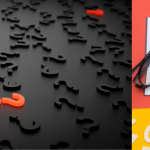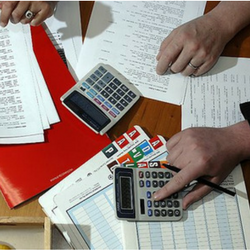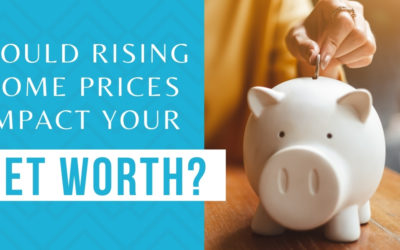Buying a home for the first time can be an exciting or stressful journey. The difference between the two is the preparation. A first time home buyer who did his or her homework prior to diving in will save on time and money much better than the home buyer who buys on a whim without careful planning. After all, this might be the single most expensive investment you’ll ever have.

Lowest Mortgage Rates in History: What It Means for Homeowners and Buyers?
First Time Home Buyers
Buying a home for the first time can be an exciting or stressful journey.…

First Time Home Buyers
The interest rate on Canada’s most popular mortgage, the five-year fixed rate, has fallen to its lowest level in history. In early June, HSBC made headlines when it began offering Canadians a five-year fixed-rate mortgage below 2%. Multiple brokers followed suit, and some are now advertising even lower rates.[1] And while many Canadians have rushed to take advantage of this unprecedented opportunity, others question the hype. Are today’s mortgage rates really a bargain?
While discounted five-year fixed mortgage rates have hovered between 2% and 4% for the past decade, they haven’t always been so low.[2] For a period of 18 years, from 1973 to 1991, the posted five-year mortgage rate never fell below 10%. At the time, the Bank of Canada was hiking interest rates to try to stem a rising tide of inflation. It’s hard to imagine now, but the five-year fixed rate peaked at over 21% in 1981.[3] Fortunately for home buyers, inflation began to normalize soon after, sending mortgage rates on a downward trajectory that has helped make home ownership more affordable for millions of Canadians.
So what’s causing today’s five-year fixed rates to sink to unprecedented lows? Economic uncertainty.
Fixed mortgage rates move in sync with the yield offered on government-backed bonds.[4] As the corona virus pandemic continues to dampen the economy and inject volatility into the stock market, a growing number of investors are shifting their money into low-risk bonds. This increased demand has driven bond yields—and mortgage rates—down.[1]
Quantitative easing measures taken by the Bank of Canada are also helping to bring down mortgage rates. The federal bank dropped its overnight lending rate to .25%, and it continues to inject billions of dollars into the economy, giving financial institutions the confidence and ability to continue lending.[1]
HOW LOW COULD MORTGAGE RATES GO?
No one can say with certainty how low mortgage rates will fall or when they will rise again. But the Bank of Canada has signaled its commitment to keeping the policy rate at its effective lower bound of .25% for the foreseeable future, and many economists expect it to remain there through 2022.[4]
The real estate technology firm Mortgage Sandbox compiled forecast data from Bank of Montreal, Central 1, Desjardins, National Bank, Royal Bank, Scotiabank, and TD Bank. According to their analysis, the consensus was that the fixed 5-year mortgage rate will rise modestly over the next two years, averaging between 2.3% and 2.88%.[5]
While forecasts may differ, many experts agree: Those who wait to take advantage of these unprecedented rates could miss out on the deal of a lifetime. Positive news about a vaccine or a faster-than-expected economic recovery could send rates back up to pre-pandemic levels.
SHOULD I CONSIDER BREAKING MY CURRENT MORTGAGE?
If you have a variable rate or recently renewed your mortgage, you may already be enjoying the benefits of falling interest rates. But if you’re locked into a higher fixed-rate mortgage for the next several years, you’re probably wondering if it’s a good idea to refinance.
Reduced interest rates can save homeowners a bundle on both monthly payments and interest over the term of a mortgage. The chart below illustrates the potential savings when you decrease your mortgage rate by just one percentage point. When it comes to refinancing, the bigger the spread, the greater the potential savings.
Estimated Monthly Payment On 5-Year Fixed-Rate Mortgage
25-Year Amortization
|
Loan Amount |
3.5% | 2.5% | Monthly Savings | Interest Savings Over 5 Years |
| $100,000 | $499 | $448 | $51 | $4,720 |
| $200,000 | $999 | $896 | $103 | $9,441 |
| $300,000 | $1498 | $1,344 | $154 | $14,161 |
| $400,000 | $1,997 | $1,792 | $205 | $18,881 |
| $500,000 | $2,496 | $2,240 | $256 | $23,601 |
Of course, you’ll need to factor in prepayment penalties and any fees associated with your new mortgage. In some cases, these can cost as much as 4% of the mortgage amount.[6] You can use an online refinance calculator to estimate your potential savings, or we’d be happy to connect you with a mortgage professional in our network who can help you decide if refinancing is a good option for you.
HOW DO LOW MORTGAGE RATES BENEFIT HOME BUYERS?
We’ve already shown how low rates can save you money on your mortgage payments. But if you can meet the mortgage stress-test requirements,* they can also give a boost to your budget by increasing your purchasing power.
For example, imagine you have a budget of $1,500 to put toward your monthly mortgage payment. If you take out a 5-year fixed-rate mortgage at 4.0% amortized over 25 years, you can afford a loan of $285,000.
Now let’s assume the mortgage rate falls to 3.0%. At that rate, you can afford to borrow $317,000 while still keeping the same $1,500 monthly payment. That’s a budget increase of $32,000!
If the rate falls even further to 2.0%, you can afford to borrow $354,000 and still pay the same $1,500 each month. That’s $69,000 over your original budget! All because the interest rate fell by two percentage points. If you’ve been priced out of the market before, today’s low rates may put you in a better position to afford your dream home.
On the other hand, rising mortgages rates will erode your purchasing power. Wait to buy, and you may have to settle for a smaller home in a less-desirable neighbourhood. So if you’re planning to move, don’t miss out on the phenomenal discount you can get with today’s historically-low rates.

HOW CAN I SECURE THE BEST AVAILABLE MORTGAGE RATE?
The best mortgage rates are typically reserved for only highly-qualified borrowers. So what steps can you take to secure the lowest possible rate?
- Consider a Variable-Rate Mortgage
If you’re looking for the lowest rate possible, and you don’t mind the added risk, a five-year variable mortgage may be right for you. Even though the prime rate has held steady at 2.45% since April 10, lenders are gradually increasing their discount rates.[1] And interest rates are expected to remain low at least through next year.
- Opt for a Closed Mortgage
Closed mortgages usually come with hefty penalties if you opt to prepay or refinance your mortgage before the term ends. However, they offer lower interest rates than convertible or open mortgages. It’s important to note that not all closed mortgages are created equal. Before you commit, make sure you understand exactly how much you’ll be expected to pay should you need to break your mortgage mid-term.
- Give Your Credit Score a Boost
You may have heard that the Canadian Mortgage and Housing Corporation has raised its minimum credit score requirement from 600 to 680. And while there are plenty of banks willing to lend to borrowers with a lower score, their best rates go to those with excellent credit. Unfortunately, there’s no fast fix for bad credit, but you can take steps to give your score a boost before you apply for a loan[7]:
- Dispute inaccuracies on your credit report.
- Pay off debt, or spread it across multiple credit facilities.
- Charge small amounts and then quickly pay off any dormant credit cards.
- To lower your utilization rate, pay your credit card bill before the statement date.
- Make a Large Down Payment
You may be surprised to learn that the lowest advertised rates often go to insured borrowers who put down less than 20%. That’s because these “high-ratio borrowers” must pay for mortgage default insurance, which protects the lender from any financial loss. So while “conventional borrowers” who make a down payment of 20% may be charged a slightly higher interest rate, their total borrowing costs are lower because they don’t have to pay for mortgage default insurance.[8] A down payment larger than 20% can bring down borrowing costs even further.
5. Shop Around
Rates, terms, and fees can vary widely among lenders, so do your homework. If you’re renewing an existing mortgage, start with your current lender. Then contact several others to find out which one is willing to offer you the best overall deal. But be sure to complete the process within 45 days—or else the credit inquiries by multiple mortgage companies could have a negative impact on your credit score.[9]
|
READY TO TAKE ADVANTAGE OF THE LOWEST MORTGAGE RATES IN HISTORY? Mortgage rates have never been this low. Don’t miss out on your chance to lock in a great rate on a new home or refinance your existing mortgage. Either way, we can help. We’d be happy to connect you with the most trusted mortgage professionals in our network. And if you’re ready to start shopping for a new home, we’d love to assist you with your search—all at no cost to you! Contact us today to schedule a free consultation. |
The above references an opinion and is for informational purposes only. It is not intended to be financial advice. Consult a financial professional for advice regarding your individual needs.
Sources:
2023 Canada Real Estate Market Outlook
Last year, one factor drove the real...
8 Strategies to Secure a Lower Mortgage Rate
Interest rates have risen rapidly this...
5 Ways to Write a Winning Offer in Today’s Real Estate Market
Our nation is in the midst of a shifting real estate market. But even as the buying frenzy begins to slow, many properties are still receiving multiple offers…
Seller’s Checklist: A Timeline to Prep Your Home for Sale
If you’re looking to sell in the near future, now is the time to consider how you can stand out.
8 Popular Home Design Features for 2022
If you’re looking to sell in the near future, now is the time to consider how you can stand out.
Could Rising Home Prices Impact Your Net Worth?
A good portion of every family’s wealth comes from the equity in the home they live in. As the value of their home (an asset) increases so does their equity.
New Year, New Home? Set Homeownership Goals Whether You’re Buying, Selling, or Staying Put
Losing weight, saving money, breaking bad habits… At the start of each new year…
Move-Up vs. Second Home: Which One Is Right For You?
The pandemic has changed the way many of us live, work, and attend school—
Lowest Mortgage Rates in History: What It Means for Homeowners and Buyers?
Mortgage rates have hit an all time low! Find out how you can secure the best available rate for a renewal, refinance, or home purchases in my latest article.
Add Value To Your Home With These 9 DIY Improvements
Looking for ways to maximize your home’s sales appreciation potential? Here”s 9 simple do-it-yourself upgrades that add function, beauty, and real value to your home.

Changes To The Mortgage Stress Test
First Time Home Buyers
Buying a home for the first time can be an exciting or stressful journey.…

First Time Home Buyers
After months of reviewing the current mortgage stress test, our Federal Government announced on February 18, 2020 that effective April 6, 2020 there will be some changes. This change will be welcomed as the pendulum continues to swing in the direction of easing for homebuyers to enter the market after years of swinging in the opposite direction.
Here are what the changes are, what they will mean to potential borrowers:.
Currently:
Insured Mortgage Borrowers (those putting less than 20% down) must qualify at the Bank of Canada Benchmark rate which is 5.19% today.
Based on this most borrowers are qualifying at 5.19% which is typically 2.3% higher than the average contract rate of 2.89% offered on the market.
Changes:
As of April 6, 2020 these same borrowers will qualify at a weekly average of insured mortgage rates +2%. The qualifying rate will be reset by the bank of Canada each Wednesday and will be applicable as of Monday the following week. The rate will be determined using an average of all interest rates being submitted to the 3 insurance providers.
Impacts to borrowers:
Here’s an example of a borrower today vs. April 6
|
|
Today |
April 6, 2020 |
|
Household Income |
$100,000 |
$100,000 |
|
Qualifying Rate |
5.19% |
4.89% |
|
Qualified Mortgage Amount |
$445,000 |
$463,000 |
* estimating property taxes of $3,500 and potential maintenance fee’s of $400 per month
As you can see from the illustration above the expected impact is about a 4% increase to purchasing power.
Impact to Real Estate Industry:
- An increase in purchasing power will often have an increase on the market, driving prices upwards. If borrowers are able to qualify for more, they are typically inclined to spend more on housing. This means that we may see additional growth in the real estate market in the coming months from both a price standpoint as well as increased numbers of borrowers. This is potently good news, especially those that may be considering selling in the near future.
- Psychological Impacts: whenever there are rule changes there are impacts made to the psyche of the customer. Here we expect two:
- Excitement: the possibility of increased qualification and the ability to enter the market. This will spur a lot of inquiry and interest from those that have been interested but felt as though they were on the sidelines.
- Wait and See: this is a common impact of any rule change. Home buyers want to wait for the rule change to take place and see what their options are at that point . Based on the above point of potential market increase this may open opportunity for those ready, willing and able to enter the market today and not wait.
Looking forward to a great spring market!
2023 Canada Real Estate Market Outlook
Last year, one factor drove the real...
8 Strategies to Secure a Lower Mortgage Rate
Interest rates have risen rapidly this...
5 Ways to Write a Winning Offer in Today’s Real Estate Market
Our nation is in the midst of a shifting real estate market. But even as the buying frenzy begins to slow, many properties are still receiving multiple offers…
Seller’s Checklist: A Timeline to Prep Your Home for Sale
If you’re looking to sell in the near future, now is the time to consider how you can stand out.
8 Popular Home Design Features for 2022
If you’re looking to sell in the near future, now is the time to consider how you can stand out.
Could Rising Home Prices Impact Your Net Worth?
A good portion of every family’s wealth comes from the equity in the home they live in. As the value of their home (an asset) increases so does their equity.
New Year, New Home? Set Homeownership Goals Whether You’re Buying, Selling, or Staying Put
Losing weight, saving money, breaking bad habits… At the start of each new year…
Move-Up vs. Second Home: Which One Is Right For You?
The pandemic has changed the way many of us live, work, and attend school—
Lowest Mortgage Rates in History: What It Means for Homeowners and Buyers?
Mortgage rates have hit an all time low! Find out how you can secure the best available rate for a renewal, refinance, or home purchases in my latest article.
Add Value To Your Home With These 9 DIY Improvements
Looking for ways to maximize your home’s sales appreciation potential? Here”s 9 simple do-it-yourself upgrades that add function, beauty, and real value to your home.

13 Most Commonly Asked Questions By Homebuyers
First Time Home Buyers
Buying a house can be exciting and overwhelming at the same time. You probably have some questions but are afraid to ask. I hope that it will be answered in here but if not, please contact me. I will be happy to answer them.
13Do I need an agent to purchase a home?
No. You don't need an agent to purchase a home but the question is, why wouldn't you? The seller pays for the commission and it is factored into the purchase price. Buying a house involves so many complex documents and negotiations. If you are not buying a house everyday, it is best to consult a knowledgeable professional who has the experience (not just any agent).
12Do I need to have a home inspection even if it's brand new?Who pays for it?
Definitely. The buyer pays for it and it costs from $350 & up, plus taxes, depending on the size.
11Does it come with appliances and furnitures?
It depends. Most homes for sale come with the appliances but some homes do not. It is important to check this with your agent. Furnitures usually do not come with the purchase so you have to budget for it. The same goes with the light fixtures and window coverings. In the end, anything is negotiable but focus on what's important. Will it break the deal if you don't get the curtains or the BBQ in the backyard? After all, you are buying the house, not the decor.
10Can I back out of a deal if I changed my mind?
If you are not buying a newly-built home directly from a builder, and you have accepted to terms with the seller, you cannot back out from the purchase after the contingency period (conditional period) is over because it is a legally binding contract. There is "no cooling period" in buying a real estate, so to speak. Doing so, will mean losing out on your deposit money and a potential legal action from the seller and the brokerage representing you to claim their losses.
9If the deal fell thru, can I get my deposit back right away?
It depends. If the deal fell thru because a condition was not met from the agreement, through no fault of yours, and both parties agreed, a mutual release has to be signed by you and the sellers and the brokerage. The mutual release will detail how the deposit will be released. The deposit holder (usually the selling agent's brokerage) will return the deposit as soon as it clears usually within a few business days after they received a completely signed release. If a buyer and seller cannot agree on how the deposit will be released, the court will decide.
8Why should I get pre-approved before I look for homes?
A pre-approved buyer means they are serious in their purchase. They know their limit ad they buy within it.
If you start looking at houses, chances are, you will fall in love with one, sooner or later. If that happens and you don't know your limit, you might be looking at the wrong price and you will lose out on it.
7How much do I need for closing costs?
The minimum amount is 1.5% of the purchase price (2% or more is recommended). For example, if you're buying a $500,000 home, you need to have at least $7,500 in your pocket at closing time. This amount goes towards paying the following:
-legal fees and disbursements
-land transfer tax
-PST on Mortgage Default Insurance (also known as CMHC, Genworth or Canada Guaranty fee)
-adjustments (costs paid by seller that is beyond closing date such as property tax, condo fees, equipment rentals, etc)
-appraisal fee
-inspection fee
Your lawyer would be able to give you a much tighter figure. This is in addition to the down payment of the house.
6 Can I sign multiple Buyer Rep Agreement so many agents can help me look for homes?
Unless you're prepared to compensate all of them, it is advisable to go with only one you trust. All registered agents will be able to see all the homes in the MLS® and can represent you in any home purchase including for sale by owners (FSBOs) and builders.
5 How much does it cost to hire an agent to help me buy a home?
An agent's compensation (commission) is usually paid by the seller and is factored into the purchase price. This is done thru Cooperation. The Buyer Representation Agreement (BRA) authorizes the agent to deal with the selling agent and seller on your behalf. If the seller is a private seller (FSBOs) and do not want to deal with agent (to save on commission), it is extremely important to discuss this with your agent before putting an offer, as this may be one of the rare occasions when you have to compensate the agent.
4 What is a Buyer Representation Agreement (BRA)? Why do I need to sign one?
A Buyer Representation Agreement authorizes the agent to work on your behalf to search for homes and represent you when it's time to put an offer and negotiate on your behalf. This document details how they are to be compensated when they bought you "A" home in the specified location for a period of time. When you have completed your purchase and you already closed, this terminates as well. As you see, this is not FOREVER. This document is a binding legal document between you and the brokerage (the company where your agent works). By signing a BRA, you are being represented properly for free (see # 5).
3 Why do I need to put a deposit and how much do I need?
A deposit or earnest money is a sign of good faith that you are serious in acquiring that property. Depending on the agreement, deposit can be herewith (comes with the offer), upon acceptance (within 24 hours of both parties' acceptance of the agreement) or as otherwise described in this Agreement. This amount goes towards the down payment of your purchased property and can be as little or as much, depending on the property and location. Typical value is about 5%. Sellers and their agents prefer higher amounts in bidding situation.
2 What is a CMHC fee? Why do I need to pay for it?
A CMHC fee (or it can be a Genworth or Canada Guaranty as well) is a default mortgage insurance. Buying a home with down payment that is below 20% is made possible by paying an insurance fee to the CMHC (Canada Mortgage Housing Corporation) or to the other insurers as mentioned previously and is dependent on who the lender is using. The fees start at 4% for a minimum down payment and can be added to the mortgage but will be factored in the GDS/TDS ratio calculation. The PST on the fee (8% of the fee) will have to be paid as closing cost and cannot be added to the mortgage.
1What is a the minimum down payment to buy a home?
For a residential home with a purchase price of $500,000 and below, the minimum down payment is 5%. Any amount higher than $500,000 will be at least 10%. For example, if you're purchasing a house worth $600,000, the down payment will be $35,000 (5% for the $500,000 and 10% for the amount over $500,000).
This amount must be in your account for 90 days and can come from RRSP, TFSA, investments, savings and chequing accounts. Gifted funds from immediate family can also be considered as a down payment.
If your down payment is coming from the proceeds of the sale of your house, the fully executed agreement needs to accompany the supporting documents for the down payment.
Buying a house can be exciting and overwhelming at the same time. You probably have some questions but are afraid to ask. I hope that it will be answered in here but if not, please contact me. I will be happy to answer them.
Buying a home is a serious and legally binding commitment. Only offer on a house that you intend to buy.











